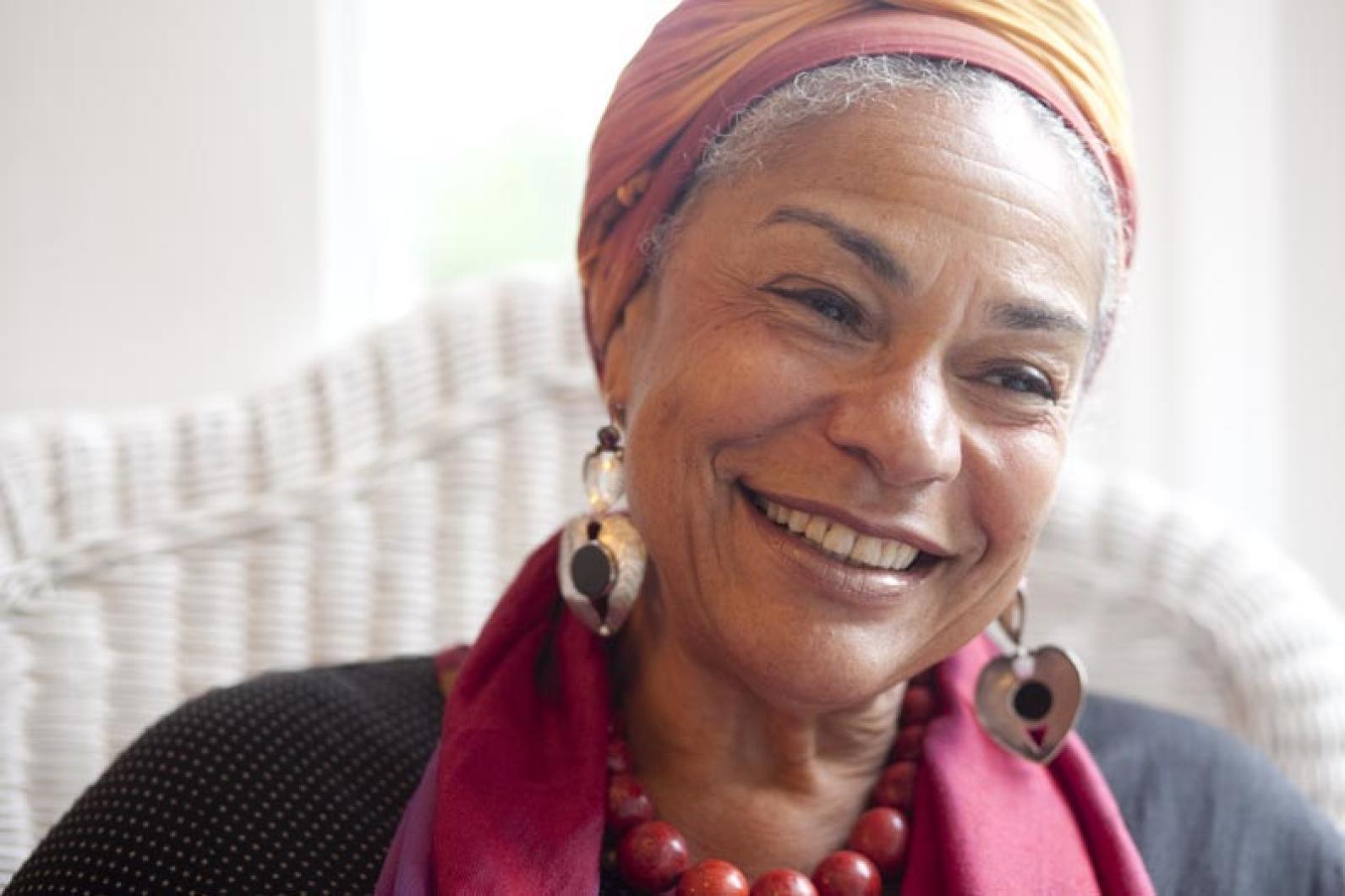As a prize-winning sociologist and Harvard professor of education, Sara Lawrence-Lightfoot possesses the curriculum vitae of one of the most successful women alive — in that achievement-oriented way that we worship in the ambitious classes of America. And yet she radiates the serenity and contemplative qualities of a genuine holy woman.
On the success side, she has under her belt a MacArthur Award, Harvard’s George Ledlie Prize for research that makes the most valuable contribution to science and the benefit of mankind, fellow status at numerous prestigious academies, 27 honorary degrees from colleges and universities in the U.S. and Canada, the Emily Hargroves Fisher Endowed Chair, which, on the event of her retirement, will become the Sara Lawrence-Lightfoot Chair, making her the first African American in Harvard’s history to attain such an honor.
And she has published nine well-known books, her latest titled The Third Chapter: Risk, Passion, and Adventures in the Twenty-Five Years after Fifty. This recent best seller in the making was the subject of her lecture and book-signing sponsored by the Vineyard Haven library this past Thursday.
As this reporter waited for Ms. Lawrence-Lightfoot in the solarium of the Hanover House in Vineyard Haven, she was tempted to throw herself on the mercy of the brilliant sociologist by crying out, “I’m a Valley Girl, you’re going to need to dumb it down for me!”
Instead of being intimidated, I was met by a gorgeous woman floating down the stairs clad in an abridged turban, scarf and kaftan in oranges, greens and blacks, dangling silver earrings and a smile on her face.
After working out the quirks of the inn’s Keurig coffee, tea and cocoa machine, we sat down at a white wicker table overlooking the lush garden. The professor explained the inspiration for her latest book about people finding fresh empowerment and direction in their 50s, 60s and 70s. “Demographers have pointed out that in every era, we embody a stage of human development. The last century was marked by a theme of adolescence. In this century, what the demographers are calling the Age Cohort is intent on giving each other permission to be less concerned with professional advancement, more interested in giving forward, of making a difference.”
When asked if this paradigm shift includes spiritual growth, she immediately sparked to the teachings of Buddhism: “We seem to find ourselves [in the third chapter] intent on living more fully in the moment, in understanding that tension between loss and liberation. Part of the bargain we’re willing to make for ourselves and others is in losing who we were and in coming to terms with the suffering that moves us to be of greater service to others.”
Ms. Lawrence-Lightfoot spoke of a radical new change in what is expected of people in the 50-to-75-year age range. “Previously, that group was basically banished into retreat, to gravitate to that which was comfortable and routine. Now, with the boomer generation entering that phase of life, that which defined them in their adolescence — their audaciousness and their conviction of helping to change history, including advancing civil rights, stopping the Viet Nam War, and the explosion of feminism — these same bold traits are now being poured into new quests, adventures, careers, intellectual journeys. There is no limit to this group’s keen new sense of exploration.”
Her books have been equally inspired by cultural trends that have captured her imagination and a keen curiosity. Prior to the writing of The Third Chapter, she noticed that in social situations someone would invariably lean in to her and confide, with a mixture of excitement, shyness, and wonder, a new undertaking, area of study, adventure, or challenge, from flying a plane to learning Spanish to throwing pots. “There is a growing sense of appropriateness in this new questing. This group is feeling increasingly liberated, less bound up with issues of status, and its level of excitement, engagement and discipline is growing in leaps and bounds.”
She suggested that these changes are made possible by lengthening life spans. She referred to Erik Erikson’s treatise on the stages of life, having called the years between 50 and 75 the stage of generativity versus stagnation: “You have the choice of moving forward or stagnating. Today, a record number of people are choosing the former.”
Ms. Lawrence-Lightfoot’s earlier books are Worlds Apart: Relationships Between Families and Schools; Beyond Bias: Perspectives on Classrooms; The Good High School: Portraits of Character and Culture; Balm in Gilead: Journey of A Healer; I’ve Known Rivers: Lives of Loss and Liberation; The Art and Science of Portraiture; Respect: An Exploration; and The Essential Conversation: What Parents And Teachers Can Learn From Each Other.
You could spend a season reading all of her books and receive an astonishing survey course in the past three decades of pivotal trends in our culture and history. Raised in the rural orchard country of New York state, she attended a two-room schoolhouse before going on to public high school in nearby Spring Valley. During her senior year, she studied in Denmark and even launched her own radio jazz show. She did undergraduate work in psychology at Swarthmore College and received her doctorate in sociology at Harvard.
Ms. Lawrence-Lightfoot lives in Boston and, while she occasionally visits friends on the Vineyard, makes her second home for holidays in New Hampshire. She has a daughter, 28, an artist living in Philadelphia, who has just given birth to a daughter.






Comments (1)
Comments
Comment policy »